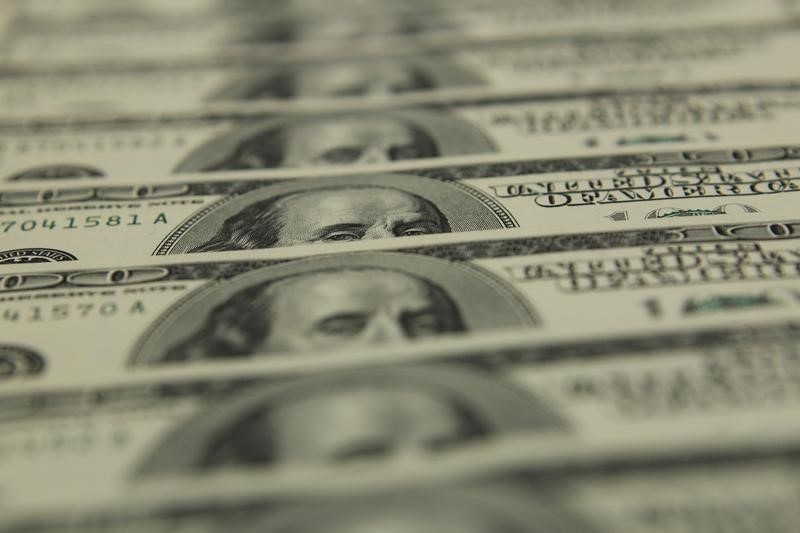Investing.com - The dollar extended earlier losses against other major counterparts on Tuesday, as a number of geopolitical concerns continued to dominate market sentiment, in the absence of any major U.S. economic reports.
The safe-haven yen and Swiss franc pushed higher, with USD/JPY down 0.56% at 112.03 and with USD/CHF declining 0.61% to 0.9737.
Investors remained cautious following reports last week that North Korea was preparing a long-range missile test.
There were concerns that Pyongyang could mark Tuesday, when it celebrates the founding of its ruling party, with some sort of provocation.
Meanwhile, diplomatic tensions between the U.S. and Turkey persisted following the suspension of visa services between the two countries, while Iran vowed a "crushing" response should Washington deem the Revolutionary Guards a terrorist group.
In Spain, the ruling Spanish Partido Popular warned Catalan leader Carles Puigdemont on Monday that he could be thrown in jail if he followed through with a planned declaration of independence on Tuesday.
But EUR/USD was still up 0.65% at 1.1816, its highest since October 2.
Elsewhere, GBP/USD advanced 0.58% to trade at 1.3217, after data earlier showed that UK manufacturing activity increased more than expected in August.
In other news, UK Prime Minister Theresa May told parliament on Monday that there would be a two-year transition period following Britain's exit from the European Union.
May also said that preparations were underway in the case Britain and the EU were unable to reach a deal on their future trade relationship.
The Australian and New Zealand dollars were stronger, with AUD/USD up 0.54% at 0.7794 and with NZD/USD rising 0.23% to 0.7082.
Meanwhile, USD/CAD slumped 0.45% to 1.2494.
The U.S. dollar index, which measures the greenback’s strength against a trade-weighted basket of six major currencies, was down 0.62% at 92.98 by 10:50 a.m. ET (14:50 GMT), the lowest since October 2.
